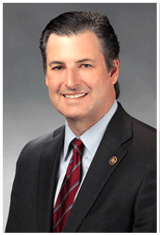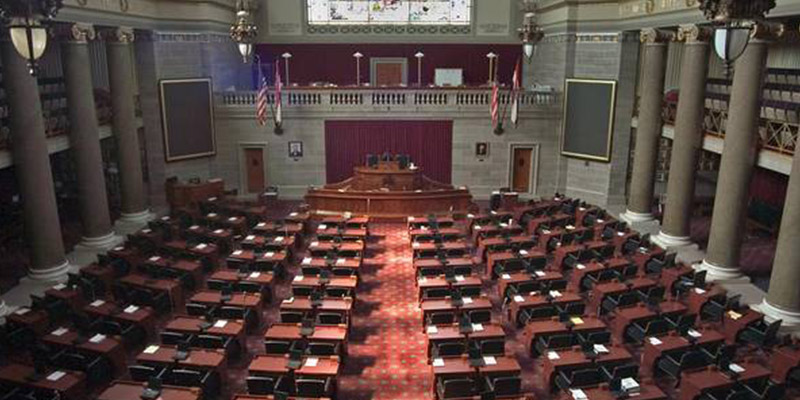JEFFERSON CITY, Mo — HB 1268, a bill to gradually cut income taxes by reforming Missouri tax brackets, passed out of the House of Representatives Thursday with a vote of 146-4.
Only one Representative, Genise Montecillo, D-St. Louis, commented on the bill on the floor, opposing it because the tax bill has a projected $12 million negative impact on general revenue in 2015. The projected general revenue for the state in 2014 is about $8 billion.

The Missouri Budget Project is a left-leaning group, but it supported the bill sponsored by a Republican legislator, Rep. Paul Curtman, Pacific.
“My friends on the Democratic side understand this manifests the most value with the poorest people in the state,” Curtman said.
Sen. John Lamping, R-St. Louis, is sponsoring the Senate version of the bill, SB 772, which was heard in the Senate Ways and Means Committee on Thursday. He agrees with Curtman that the bill is the fairest way to cut taxes. While it affects low and middle-income taxpayers more substantially, even wealthy taxpayers will receive a cut.
Curtman said he sees the bill not as much of a cut but as tax reform. The bill would adjust Missouri tax brackets using the Consumer Price Index from the U.S. Department of Labor. Tax brackets in Missouri have not changed since implemented in 1931. Income is taxed in nine different percentages for the first $9,000. Anything over $9,000 is taxed at 6 percent.
“9,000 was a lot of money in 1931,” Curtman said. “Now it’s $2,400 below the poverty line.”
Using the CPI will cause the legislature to adjust the brackets every year to account for inflation. Starting in 2015, the brackets don’t change too much but in about seven years the top bracket could move to $18,000.
“It’s a really smart, bipartisan bill,” Lamping said.

Had inflation been taken into account when the original tax brackets were set up, the top tier would about $130,000 today. Curtman sponsored a bill last year that retroactively changed the brackets to match that inflation. The bill was eventually voted down because of a $2.5 billion fiscal note.
This bill starts the process in 2015 and while the fiscal note gradually grows year by year as inflation increases the impact is about $12 million the first year and $24 million the second. Inflation for the bill was projected at a 2.7 percent yearly increase.
The Missouri Budget Project figured the budgetary impact in 10 years will be $41.7 million. However, that figure does not factor in increases in sales tax and other revenue from pumping money back into the economy.
“Certainly, low and middle income people are more likely to spend money in the state,” Missouri Budget Project Public Affairs Officer Jay Hardenbrook said.
Currently Missouri is one of the few states with tax brackets that do not adjust for inflation. Curtman believes the bill will be voted out of the Senate.
“A tax bill like this,” he said. “People will want to take that back to their districts.”




